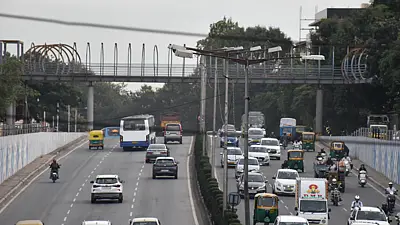The 40th report of the Karnataka Legislative Assembly’s Committee on Local Bodies and Panchayati Raj Institutions, chaired by MLA Rizwan Arshad, has shed light on critical lapses in Bengaluru’s underground utility mapping. The report is based on 2022 audit observations by the Comptroller and Auditor General of India (CAG) and highlights inefficiencies in the Urban Development Department’s execution of this crucial project.
The Importance of Utility Mapping
Utility mapping is an essential aspect of urban infrastructure planning, aiming to provide a comprehensive overview of underground utilities like water pipelines, sewage systems, gas lines, and telecom cables. Accurate mapping helps mitigate risks such as accidental damage during construction, facilitates efficient infrastructure upgrades, and ensures public safety.
In a rapidly expanding city like Bengaluru, with its burgeoning population and increasing demand for utilities, the importance of precise underground utility mapping cannot be overstated. However, the recent report highlights serious shortcomings in the implementation of this initiative.

Key Findings of the Report
- Lack of Comprehensive Data Collection:
The Urban Development Department failed to gather accurate and exhaustive data on underground utilities. This has led to discrepancies in the mapping process, leaving significant gaps in the city’s utility infrastructure records. - Substandard Implementation:
The mapping project suffered from poor execution, with contractors allegedly cutting corners and compromising the quality of work. This has resulted in maps that are neither reliable nor comprehensive, making them ineffective for future planning. - Overlapping Jurisdictions:
The report points out that a lack of coordination among various civic bodies and departments has led to overlapping responsibilities and duplicated efforts, causing inefficiencies and delays. - Non-Utilization of Advanced Technology:
Despite advancements in geospatial and GIS (Geographic Information Systems) technology, the mapping process relied on outdated techniques, further reducing its accuracy and utility. - Financial Mismanagement:
The report raised concerns about the misallocation of funds, with significant portions of the budget unaccounted for or spent ineffectively.
Impact of Flawed Utility Mapping
- Frequent Utility Disruptions:
Inaccurate maps have resulted in frequent damage to underground utilities during roadworks and construction projects, causing water supply interruptions, sewage leaks, and power outages. - Increased Project Costs:
Poor mapping has led to repeated excavation and reconstruction, inflating costs for civic infrastructure projects and burdening taxpayers. - Public Safety Hazards:
The lack of reliable maps poses a risk to public safety, especially during emergencies like gas leaks or water main bursts, as authorities struggle to locate and address the issues promptly. - Hindered Urban Development:
Flawed utility mapping hampers Bengaluru’s ability to plan and execute new infrastructure projects efficiently, slowing down the city’s overall development.
Recommendations from the Committee
The report provides several actionable recommendations to address the shortcomings in Bengaluru’s utility mapping initiative:
- Adopt Modern Technology:
Civic bodies should leverage advanced GIS and LiDAR (Light Detection and Ranging) technologies for accurate and efficient utility mapping. - Improve Coordination Among Agencies:
The government must establish a centralized authority to oversee the mapping process, ensuring better coordination among various departments and agencies. - Ensure Accountability:
Contractors and officials involved in the project should be held accountable for any lapses, with stringent penalties for non-compliance. - Conduct Regular Audits:
Periodic audits by independent agencies should be mandated to ensure transparency and adherence to project timelines and budgets. - Engage Experts:
The government should involve urban planning experts and technology specialists to design and implement the utility mapping project effectively.
Public Reaction and Implications
The findings of the report have sparked discussions among urban planners, policymakers, and citizens. While some view it as a wake-up call to address long-standing inefficiencies, others are skeptical about the government’s ability to implement the recommended reforms.
With Bengaluru’s rapid urbanization and mounting infrastructure challenges, accurate utility mapping is more crucial than ever. The failure to address these issues could have far-reaching consequences for the city’s growth and quality of life.
The Path Forward: Revamping Utility Mapping
The Karnataka Assembly’s report underscores the urgent need for a comprehensive overhaul of Bengaluru’s utility mapping project. By adopting modern technology, ensuring accountability, and fostering better coordination among agencies, the government can rectify the existing flaws and set a benchmark for urban infrastructure management.
Effective utility mapping is not just a technical requirement but a cornerstone of sustainable urban development, ensuring that Bengaluru remains a livable and thriving city for years to come.

